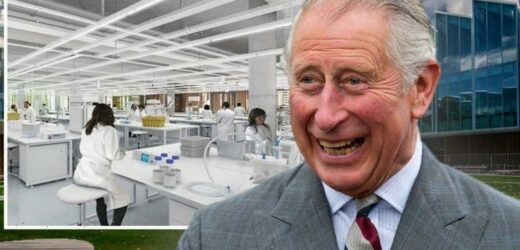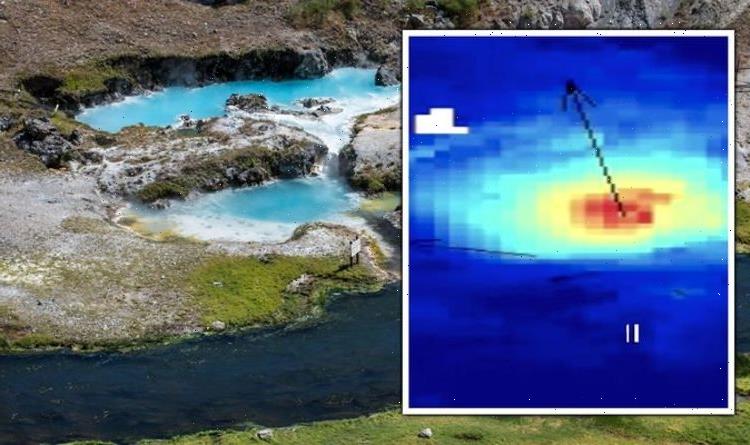AstraZeneca unveils new research centre in Cambridge
We use your sign-up to provide content in ways you’ve consented to and to improve our understanding of you. This may include adverts from us and 3rd parties based on our understanding. You can unsubscribe at any time. More info
The £1billion facility will combine the best of Britain’s cutting-edge technology with some of the nation’s brightest minds. Officially named The Discovery Centre (DISC) in Cambridge, more than 2,200 scientists will have access to new the research and development (R&D) hub. AstraZeneca has already supplied more than two billion doses of its life-saving Covid vaccine, which was developed in partnership with Oxford University.
But it looks as though the British-Swedish pharmaceutical giant is not about to rest on its laurels.
The Discovery Centre will provide state-of-the-art artificial intelligence (AI) technology and robotics to facilitate the development of next-generation drugs and therapeutics.
Among them, AstraZeneca will focus on nucleotide-based, gene-editing and cell therapies from the bleeding edge of modern medicine.
Pascal Soriot, Chief Executive Officer, AstraZeneca, said: “Our ambition today is to not only unveil a building, but to also drive the next wave of scientific innovation.


“Our new Discovery Centre in Cambridge raises the bar for sustainable R&D and global collaboration across our industry.
“It will allow us to break new boundaries in the understanding of disease biology, bring life-changing medicines to patients and power the next stage of our company’s growth.”
Found within the Cambridge Biomedical Campus, the unveiling will take place in the presence of Prince Charles who will meet with Leif Johansson, AstraZeneca Chairman.
Together with other senior members of the company, the Prince of Wales will be given a walking tour of the facility.
Pfizer and AstraZeneca vaccines approved for booster scheme
AstraZeneca is presently investing more than £5.2billion ($7billion) in global R&D and has a presence in more than 40 countries worldwide.
Other strategic research centres have already been opened in Sweden and the US, as well as development facilities that have opened in China and Japan.
But the company claims that a considerable portion of that money is presently being invested in the UK.
AstraZeneca already boasts more than 200 active collaborations in the region, with more than 2,000 across the world in the fields of biotech, academia and industry.


The new facility will help foster new relations with the University of Cambridge.
The so-called “Cambridge Cluster”, with DISC right at its centre, already includes more than 400 companies and employs some 20,000 people.
It is estimated to contribute a staggering £3billion to the UK economy each year.
Besides its contributions towards the development of new drugs, DISC aims to be a wonder of eco-friendly engineering.
The disc-shaped facility features a total of 174 boreholes that will supply natural geothermal energy through “four hybrid cooling towers” and a ground heat pump, saving enough energy to power 2,500 homes.
The building is also equipped with low-energy ventilation and insulation that raises its efficiency levels.
The roof’s “saw-tooth” design, meanwhile, minimises electricity usage during the day by flooding the interior with natural sunlight.
The push for high energy efficiency is in line with the company’s Ambition Zero Carbon programme.
AstraZeneca has committed to reaching net-zero carbon emissions from its global operations by 2025, with an added goal of being carbon negative by 2030.
Source: Read Full Article


